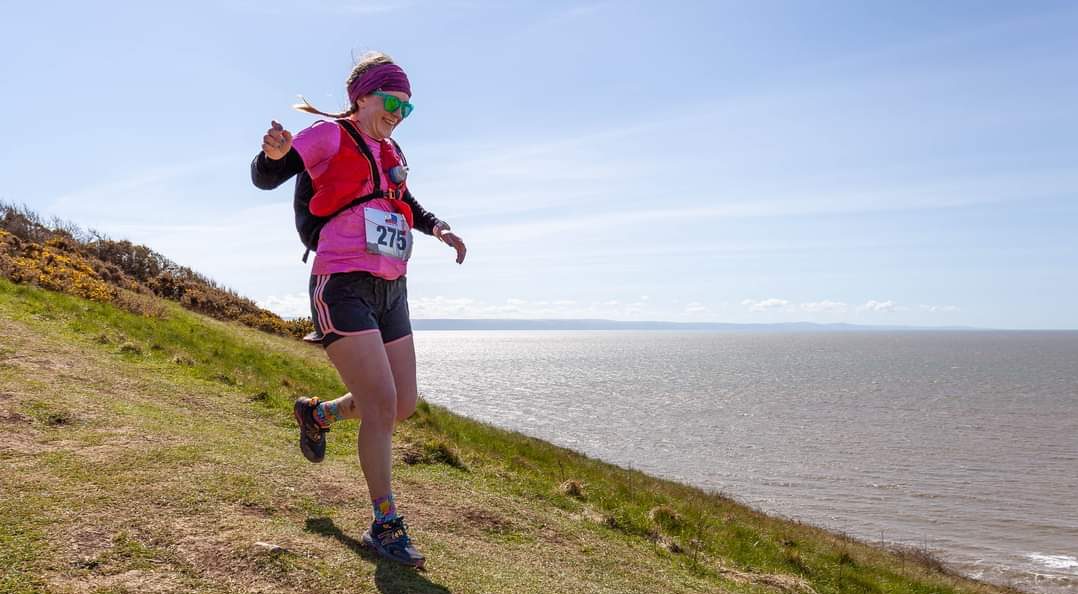A couple of months ago I’m starting to think I did something pretty stupid. I was looking for something to challenge myself and after deciding that I had really enjoyed my foray into open water swimming for triathlon training I entered an open water event. But not just any event. I entered the Welsh Swim which is a 2.4 mile swim being held in Tenby in July.
Now at the time I was convinced that it was doable. I can swim a mile under my own steam. I’m not fast, I’m not technically proficient but I get there. So I convinced myself that 2.4 mile wouldn’t be so bad. I planned to get some open water practice in locally (with friends) and it was all going to be fine.
But it’s not. Because for some darn reason little head demons have crept in and are making me doubt my ability. I’m used to self doubt and tough mental stretches in running races. But this self doubt seems to be manifesting itself physically as panic and it’s crippling my training.
A couple of weeks ago I went to the pool with a goal in mind. I didn’t even achieve half of it. I had intended to go for eighty lengths and I think I managed under forty. I struggled from the off, my body felt like lead and my breathing was all to pot. I pulled myself out of the pool frustrated and angry. I know I had been tired, I had been away on a kids’ rugby tour but I still felt I should have been able to swim the way I wanted to. I didn’t go back to the pool until this week.
I had to make myself go swimming on Monday. I had been avoiding it, turning to my preferred love of running. But feelings of guilt at the possibility that I was on the verge of giving up were screaming at me so I went. I was terrified I was about to have a similar experience.
I started swimming and it felt not to bad. And then my mind started to wander and the challenge of swimming 2.4 miles in the sea started to play with my head. Then I convinced myself that I might have missed a phone call from school and feelings of mum guilt sneaked in. I started to worry about other things at home like the work that needs doing to the house since the flooding incident. This was accompanied by stressing that I might not ever find anywhere to house my physio practice again. I then started worrying about my breathing and how slow I am and about my stroke and that I should try more bilateral breathing, and maybe I don’t belong in the International Pool because I don’t have a pull buoy and paddles. And then I realised that the way I was feeling was similar to open water panic but I was experiencing it at the swimming pool. ‘Totally ridiculous’, I scolded myself, ‘I can’t let this happen in the swimming pool!’
So I stopped swimming front crawl and started swimming breast stroke, calming my breathing, getting back control, forcing myself to be in the moment again. After a few lengths the panic had subsided and when I felt ready I started swimming front crawl again, but in a similar rhythm to my breast stroke. Slow and in control. I ended up swimming 88 lengths, my furthest swim ever, and physically I felt tired but not sore or in pain. I had just needed to switch my brain off and slow down.
I have no idea if I will be on the beach in Tenby ready to take on this challenge. My head seems to be messing me up a bit at the moment, but I’ll keep trying. I would hate to be a DNS because of my lack of mental toughness where this event is concerned. It will feel like a failure if I don’t do it because of the fear of panicking. But I remember feeling a bit like that at the start of my triathlon swim a couple of years ago and once I was in and swimming all the fear ebbed away and the excitement of being in the race took over. Maybe the key here will to stop being so judgmental of myself and have faith that I can do this. Instead of ‘shut up legs’ it’s a case of ‘shut up head’. Be quiet head demons and let me swim!
